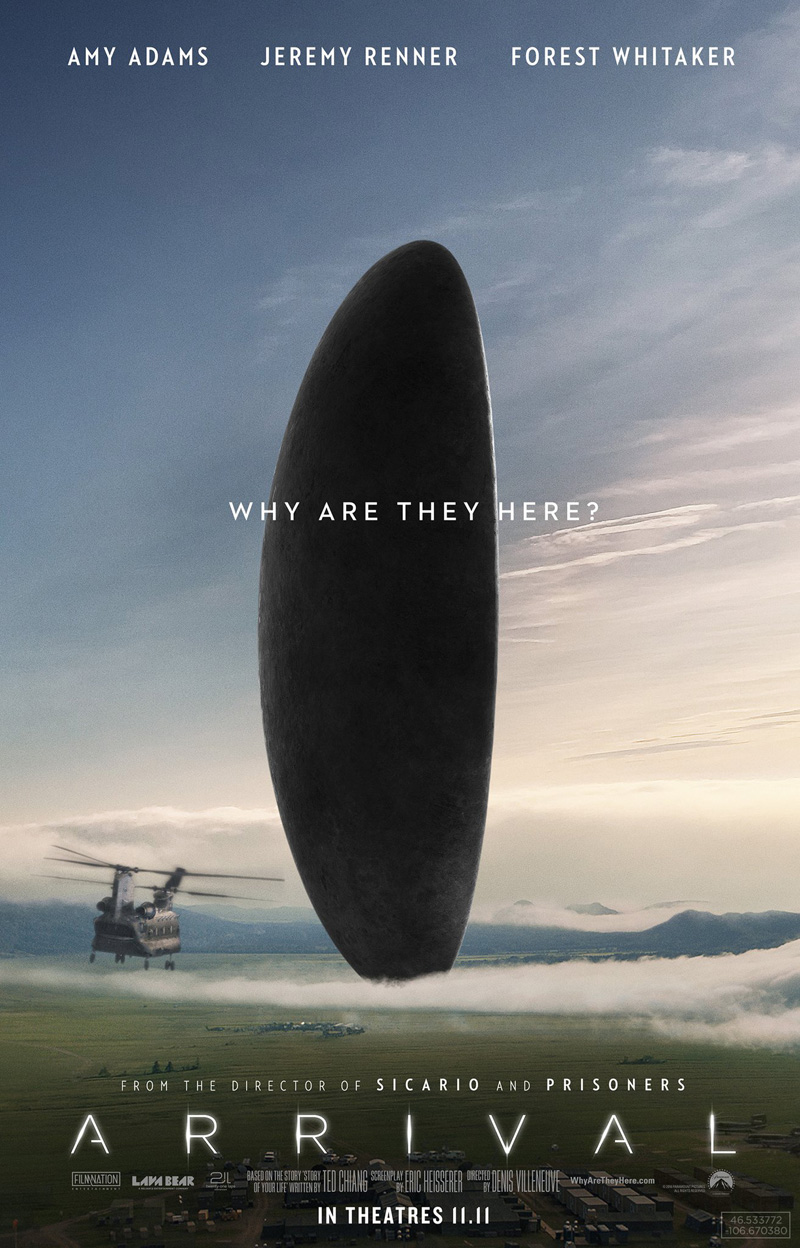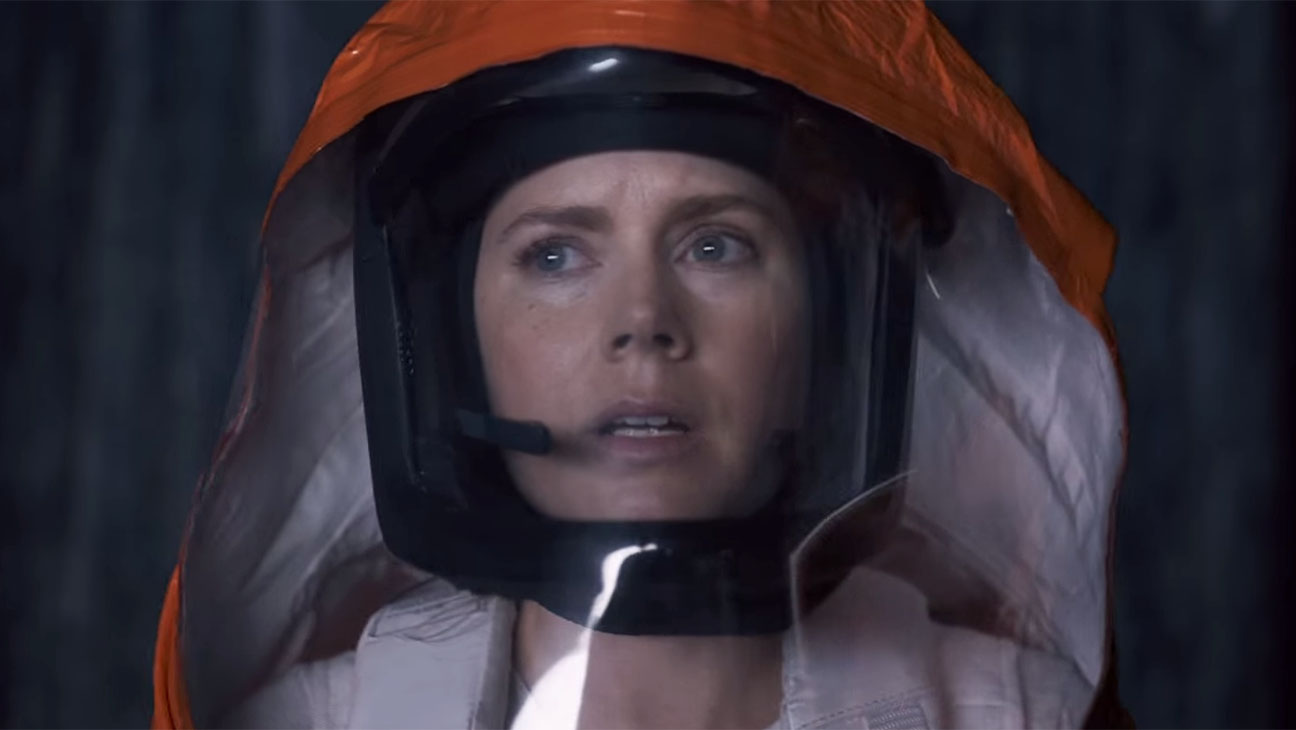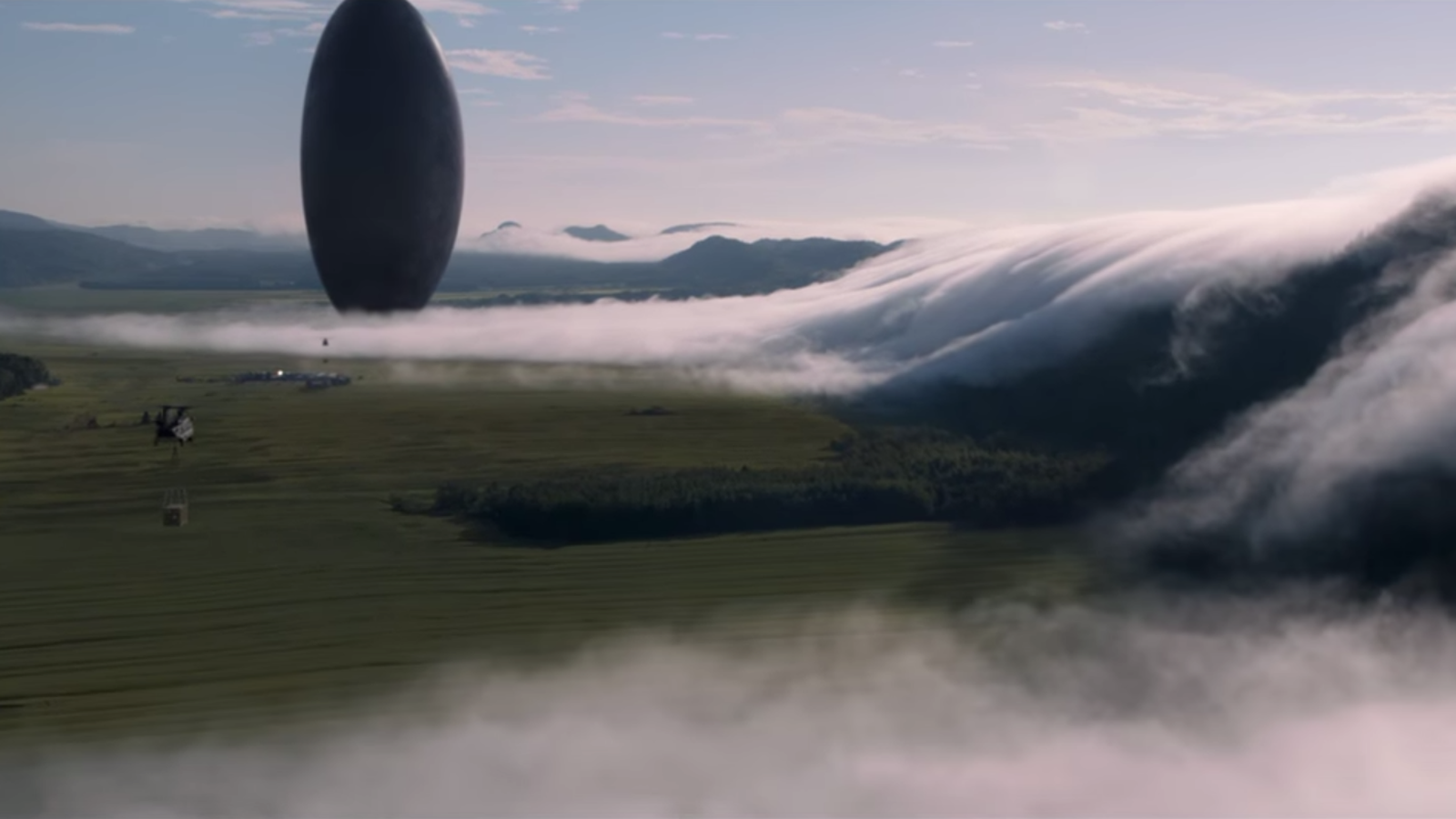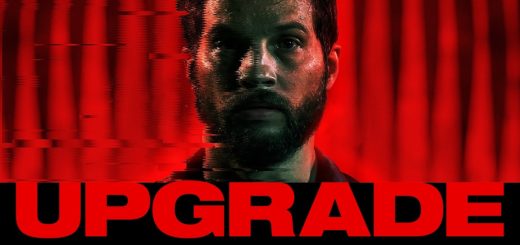ARRIVAL Review

Director: Denis Villeneuve
Genre: Science Fiction
Year: 2016
Denis Villeneuve let INTERSTELLAR come and go from the cultural conscience, learned from its mistakes, and went and made the second best Christopher Nolan film ever made. He has become self-aware: He is repeating some of his most famous cues, in homage to his own mystique. See what you all did? You went and sang the praises of a mediocre drug thriller and an even more airless revenge thriller so loudly that this dude thinks he’s the bomb. Hell, he’s got a BLADE RUNNER sequel up next — he’s untouchable. Luckily for me and the other cult followers, his newest piece, a sci-fi exercise in the schools of Tarkovsky and Spielberg, is one from the mind that made ENEMY. ARRIVAL, though far from the masterwork many will want it to be, is one of the premier genre films of 2016.
I’ll sign my name and put this on the record: Amy Adams is not a good actress. Her delivery is often excessively stiff, the cadence she carries highlighting the artificiality of the entire film around her. While heralded as one of the industry’s best, she is a performer who is very clearly performing. None of it is natural, which is why her turn in 2013’s AMERICAN HUSTLE is her best performance: a 30-faced con woman, Sydney Prosser, who clumsily acts her way through every ploy. While I’m hard-pressed to say that this is her major talent, Adams works best when knee-deep in a character who is denying themselves the experience of their natural self. And so enters Dr. Louise Banks, a quietly grieving mother who struggles to keep her mental guard up for the entire runtime. Adams is magnetic, her attempts at normalizing her depression so draining her skin practically grays. Her sorrow, so tellingly soothed by her maternal instincts in carrying out the task of translating an invading alien’s language, mixed with Jóhann Jóhannsson’s gripping score positions the film as an opera of empathy.

I’m sorry for the full paragraph of back-handed compliments, Amy
In a media landscape where “nonlinearity” is nearly synonymous with “this excuse should cover up our movie’s irrecoverable disjointedness,” and with TRUE DETECTIVE’s infamously undelivered time as a flat circle thematics, ARRIVAL is a stellar achievement. Fluidity ebbs us through familiar story beats, while cinematographer Bradford Young’s eye guides us through unspoken character details in the background and foreground. Yes, there is the obligatory scene of Amy Adams’s linguist expert being walked through the military base for the first time as she meets the team, but notice how she is the only one in focus. Like Adams’s character, we’re put at ease by that which we feel is like home, but are utterly challenged and thrilled by confrontations with the unknown, an approach that only eases the insertion of a semi-spacious and loose narrative. Even if you guess the “twist” early on, which, upon reflection, does not take much effort to reckon, witnessing Villeneuve masterfully utilize the flatness of time as a plot mechanic as if it’s a decades-old screenwriting trope is a delight.
Cinema Sins will have a field day with this, for sure, but as the film encroaches on being an ever palatable Malick-esque assemblage of passions and memories, logic renders itself null. ARRIVAL has been labeled as smart sci-fi, and it’s true, but do not be misinformed: The science is as moronic as the Hollywood school has ever been. Intelligence blooms in the coalescing of emotion and spectacle, of sonics and evocative imagery. Young and Villeneuve create set-pieces, such as an early slow-burning hydraulic lift into the invading ship, that inspire a cautious wonder not experienced since my first viewing of JURASSIC PARK.

Scope: This film gets it
While the storytelling is a rewarding exercise in letting the audience work for their meal, I worry that both the viewers, and ARRIVAL itself, think that it is more than it is. For a plot so deeply focused in linguistics and methods of communication, Villeneuve is hardly rewriting film language here. In classic fashion, his first two acts feel like a more visually pronounced 2:30PM showing of a bargain bin blockbuster on the USA Network than an Earth-shatteringly original plot. When Louise opens the front door of her astoundingly beautiful lakeside home to military helicopters, you half expect Jean-Claude van Damme to walk out. The dialogue is filled with comic relief groaners, flat expressions, and a remarkably so-bad-it’s-kind-of-good closing line, but this is an experience best defined by stares, visions, and symbols.
A quasi-adaptation of Kurt Vonnegut’s SLAUGHTERHOUSE-FIVE (try looking at the aliens in ARRIVAL and not comparing them upside-down Tralfamadorians) with a mix of GRAVITY’s loss parable and a healthy spritzing of INCEPTION’s finale (SPOILERS: in ARRIVAL’s greatest downfall, a powerful Chinese man holds the unfathomable, unmotivated deus ex machina in a semi-illusory reality that all too neatly and phonily ties up the spiraling narrative), this is a hugely derivative piece of science fiction, but that doesn’t mean it isn’t satisfying. It just isn’t entirely to the director’s credit: Writing this review has been as much a struggle as trying to praise a chef who cooked you a Blue Apron meal. Villeneuve brings his vision, and it astounds for the duration of the runtime and, well, that’s about it. Terrific, consumptive storytelling that leaves nary a philosophical mark, but, hey, everything was beautiful and nothing hurt.
Verdict: Recommend



